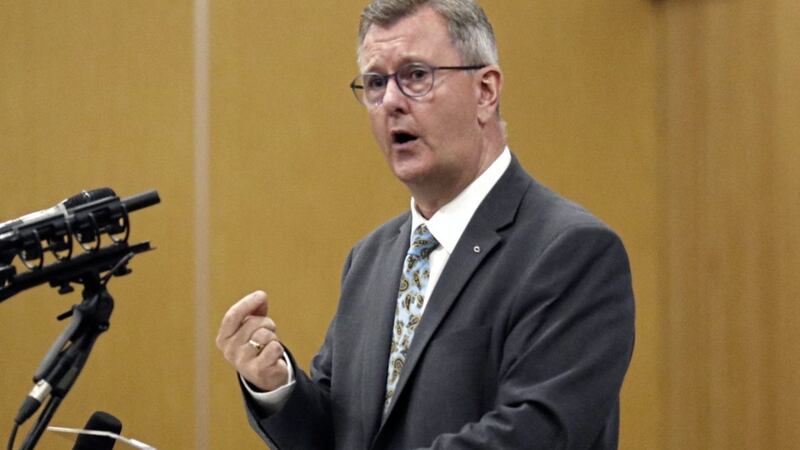ALTHOUGH Jeffrey Donaldson may not resemble Julius Caesar, either in appearance or leadership style, he too might be well advised to beware the Ides of March.
The Ides (middle) of March is the last date by which Jeffrey must pull down Stormont to stick to his promise of collapsing the institutions unless the NI Protocol is abolished.
Two weeks after the Ides, candidates will begin handing in their nomination papers for May’s Assembly election. He can hardly delay his threat until the election process has begun.
So his final deadline is March 15, which in ancient Rome was the date for settling debts or, in the case of default, being thrown into prison. Jeffrey’s position is pretty similar. He must either make good on his promises or join Arlene in political exile.
So what is he likely to do and what impact will it have? His only option is to collapse Stormont. Anything less will leave him open to ridicule, which is hardly the best preparation for an election.
The impact of pulling down the institutions depends on how he does it, when he does it and how well he fits it into his election campaign.
He might learn from SF’s collapsing Stormont in 2017. They claimed the moral high ground as Stormont’s RHI scheme was exposed (even though they had actively promoted it up to then).
Jeffrey must aim for that same high ground, but despite the anti-protocol camp’s strong case, he is losing the media battle. (There is a PhD in researching why nationalism is much better at communication than unionism.)
So he must balance victimhood with defiance. You know the sort of thing: “It is with a heavy heart that I do this. I have been patient and reasonable, but the anger of the unionist people has become too great for words. Now is the time for action.”
As a member of Her Majesty’s Privy Council, he might like to merge Churchill’s “Men will say this was their finest hour” (1940) with Elizabeth I’s pledge to lay down her life “for my God, and for my kingdom, and my people, my honour and my blood” (1588).
However, Jeffrey’s style of leadership is perhaps more suited to delicate diplomacy than firebrand oratory.
His problem is one of communication. He is highly articulate, but he always sounds as if he is saying nothing.
His criticism of the protocol displays all the passion of someone explaining a cake recipe. His monotone style could whip an audience into a frenzy of apathy, which makes it difficult to see him manning barricades on the Shankill Road.
Should Stormont collapse it will generate widespread condemnation. Despite their protests, SF will be happy to see an end to its northern branch’s embarrassing role in government for almost 25 years with nothing to show for it. The SDLP will fulminate. Alliance will pontificate.
Joe Biden will condemn it for not fitting with his view of Ireland, which appears to be based on the 1959 film Darby O’Gill and the Little People. The Queen will presumably not be amused if one of her privy councillors causes one of her devolved governments to go missing, just as she celebrates her platinum jubilee in June.
Boris Johnson will say things like “Crikey”(it’s hard to beat an Oxford education) and then lose interest. The Dublin media will rant, since much of it is still in denial about Brexit, and it will not matter what Leo Varadkar says, because few listen to him these days.
Here, few will care because, apart from Robin Swann’s good governance, Stormont bears little relevance to the everyday lives of ordinary people.
Of course, Jeffrey may decide to leave Stormont intact, but that would end his position as party leader. The timing of his possible downfall is hard to predict, but the Ides of March would appear to be a good time for a political assassination.








